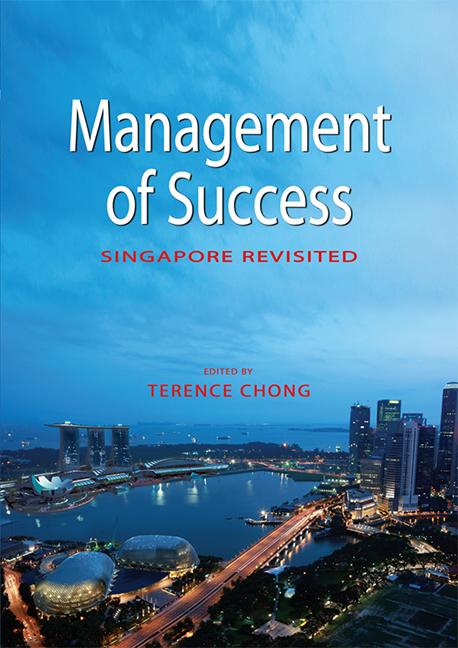Book contents
- Frontmatter
- Contents
- List of Tables and Figures
- Foreword
- Message
- Quote
- Preface
- The Contributors
- 1 Introduction: The Role of Success in Singapore's National Identity
- SECTION 1 SINGAPORE IN THE BIGGER PICTURE
- SECTION 2 LEADERSHIP, POLICY AND POLITICS
- SECTION 3 THE RESTRUCTURING OF THE ECONOMY
- SECTION 4 THE TRANSFORMATION OF SOCIETY
- SECTION 5 THE LAW
- SECTION 6 MODIFICATION OF THE ENVIRONMENT
- SECTION 7 COMMUNITY AND NATIONAL SECURITY
- 24 Community Confidence and Security
- 25 National Security and Singapore: An Assessment
- SECTION 8 LIFE IN SINGAPORE
- Index
25 - National Security and Singapore: An Assessment
from SECTION 7 - COMMUNITY AND NATIONAL SECURITY
Published online by Cambridge University Press: 21 October 2015
- Frontmatter
- Contents
- List of Tables and Figures
- Foreword
- Message
- Quote
- Preface
- The Contributors
- 1 Introduction: The Role of Success in Singapore's National Identity
- SECTION 1 SINGAPORE IN THE BIGGER PICTURE
- SECTION 2 LEADERSHIP, POLICY AND POLITICS
- SECTION 3 THE RESTRUCTURING OF THE ECONOMY
- SECTION 4 THE TRANSFORMATION OF SOCIETY
- SECTION 5 THE LAW
- SECTION 6 MODIFICATION OF THE ENVIRONMENT
- SECTION 7 COMMUNITY AND NATIONAL SECURITY
- 24 Community Confidence and Security
- 25 National Security and Singapore: An Assessment
- SECTION 8 LIFE IN SINGAPORE
- Index
Summary
NATIONAL SECURITY IN SINGAPORE
National security has traditionally been thought of in terms of the employment of military power to protect the territorial integrity of the state. Thus, national security is, according to such traditional conceptions, the necessary foundation for the “good life” of its citizens to be realized. Consequently, stemming from this, the military was viewed to be the primary instrument of national security, and, if non-military instruments of national security existed, the latter was clearly secondary to the former.
Arguably, this relationship between the military and non-military instruments of national security has now changed and securing the nation has become significantly more complex than it used to appear. Despite the sharp decline of interstate wars especially with the end of the Cold War, the porosity of territorial boundaries with rapid globalization has ensured that the cohesion and survival of nation states remain vulnerable. Recent events such as the Asian financial crisis in 1997, Severe Acute Respiratory Syndrome (SARS) and, most notably, September 11, have been instructional for the realization that traditional security concerns such as an invasion by a foreign country need not be the only manner by which the national security of a state can be threatened. Moreover, these recent security aberrations have clearly illustrated that security threats are constantly evolving and that no amount of planning can completely eradicate the element of strategic surprise. Without the luxury of 20/20 hindsight, September 11 and SARS remained off the radar of most governments until after the fact.
In other words, the components of national security — the things to be secured — have not only expanded but the threats have also become more unpredictable. In light of this, national security is made even more difficult owing to the finite resources at the state's disposal. Full protection is a near impossible task as every possible target cannot be secured fully. For instance, to protect every building in a country from a terror attack would overstretch the resources of the state — hence, an attempt to protect every building would be to protect every building poorly. This problem of finite national security resources is compounded by the difficulty in knowing beforehand what the threats are, where it emanates from, and how it will manifest itself. Even the technological wizardry of pervasive, multi-dimensional and redundant reconnaissance and surveillance systems cannot confer upon the national security apparatus omniscience.
- Type
- Chapter
- Information
- Management of SuccessSingapore Revisited, pp. 462 - 486Publisher: ISEAS–Yusof Ishak InstitutePrint publication year: 2010

